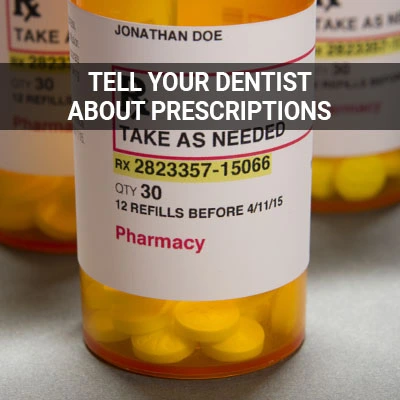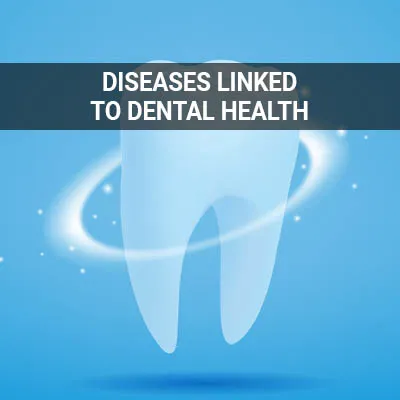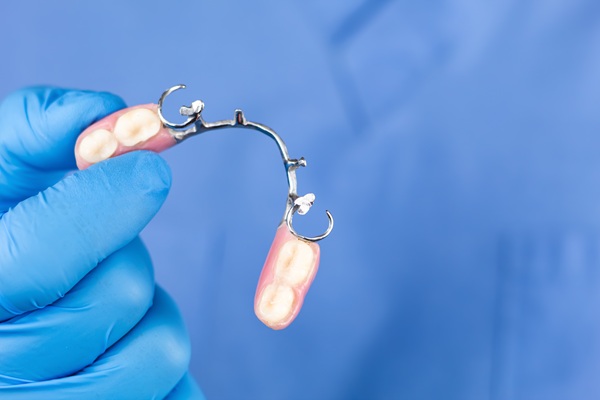Conditions Linked to Dental Health Dumont, NJ
The emergence of complete health dentistry has seen an astounding advancement in the dental industry as researchers find a connection between oral and general health. The mouth is the leading entryway to the body and is known as the window to a person's general health. A complete health dentist understands the connection between oral and overall health, running their practice on the application of modern dentistry with a focus on systemic relief.
People who take proper hygiene measures to ensure their oral health is up to par may have fewer general health problems. Although many conditions, illnesses, and diseases are genetic, it is possible to combat others through proper oral hygiene. Understanding and applying the oral-systemic link can profoundly enhance a person's health and well-being.
Complete health dentistry is available at Dumont Family Dental in Dumont and the surrounding area. Our staff can help you learn more about the oral-general health connection. Call us at (201) 374-7202 to schedule a consultation appointment today.
Habitual Vs. Genetic
Habitual
Dental problems stemming from behavior, habit, and maintenance affect a person's oral health from birth to adulthood. Maintaining a proper oral hygiene routine is crucial from the moment the first teeth erupt. A healthy routine for adult teeth consists of brushing 2-3 times a day, flossing daily, rinsing before and after meals, and visiting the dentist for regular checkups and cleanings.
Genetic
A variety of oral health conditions are primarily genetic and may be out of a person's control. In most cases, health conditions are a combination of genes and the environment. Oral conditions found to be genetic to some extent include periodontal disease, cavities and caries, tooth decay and erosion, oral cancer, cleft lip or palate, and misaligned teeth. These conditions can escalate with improper or inadequate oral hygiene and impact other body systems.
How to Prevent These Issues
Oral care in early infanthood (wiping down or brushing the infant's gums several times a day) is the first step in the oral health journey and can significantly decrease a person's risk of other diseases through adulthood. More severe conditions such as gingivitis, periodontal disease, and oral cancer can be treated by a dental professional through surgeries and various treatments when found early on.
“In most cases, health conditions are a combination of genes and environment.”
Cavities and Sensitive Teeth
Cavities and caries are the root causes of initial tooth decay caused by a breakdown of the tooth's enamel. As tooth structure decays, the teeth and surrounding areas become sensitive to hot and cold food, drink, air, and temperature. Sensitive teeth tend to bleed more or cause discomfort when brushing and flossing, leading to poor oral hygiene.
Other Effects of Cavities
Cavities are also the leading cause of tooth decay and tooth loss. According to the Medical News Today, without treatment, tooth decay can cause an abscess (severe infection) under the gums. This infection can spread to other parts of the body and cause severe medical issues. Infections include gum disease, and, in more severe cases, periodontal disease, which can both profoundly impact the body systems, especially the digestive and respiratory tracts.
“As tooth structure decays, the teeth and surrounding areas become sensitive to hot and cold food, drink, air, and temperature.”
Cracked and Broken Teeth
Cracked teeth can happen in a variety of ways: craze lines, cracked cusps, cracked teeth, and split teeth. Craze lines are common in adults and are not harmful as they are merely on the surface enamel but may lead to a cracked tooth. Cracked cusps can lead to a broken tooth, and cracked and split teeth need immediate attention as they can cause damage to other parts of the mouth, especially the gums.
Cracked or broken teeth can cause many oral and general health problems, as cracks give way to bacteria and infection. The Oral Health Foundation found that "If they are not treated, cracked teeth can lead to the death of the nerve, and an abscess might grow." An abscess is full of pus and bacteria, and when it opens, the bacteria travels through various tracts to the body.
“Cracked or broken teeth can cause many oral and general health problems, as cracks give way to bacteria and infection.”
Check out what others are saying about our dental services on Yelp: Conditions Linked to Dental Health in Dumont, NJ
Oral Cancers
Patients who use tobacco or nicotine products are at risk for oral cancer. Some patients may also develop oral cancers due to HPV infection. During each visit, the provider reviews the patient's risk factors for cancer. In addition, dental providers can perform oral cancer screenings in-office. Many forms of oral cancer are curable when detected early.
However, when oral cancer spreads, patients may develop life-threatening complications. Oral cancer may also cause jaw disorders and tooth loss. In addition, these dental troubles can trigger nutritional deficiencies and other health problems. Fortunately, oral cancer screenings can help patients protect their well-being.
“Many forms of oral cancer are curable when detected early.”
Questions Answered on This Page
Q. Are oral conditions genetic or a result of environmental factors?
Q. How do cavities relate to teeth sensitivity?
Q. How can a cracked or broken tooth affect other body systems?
Q. What are some risk factors for oral cancer?
Q. What are the health risks of gum disease?
People Also Ask
Q. What preexisting conditions are linked to oral health?
Q. How does medication for diabetes impact oral hygiene?
Gum Disease and Oral Health
Gum disease affects millions of Americans each year. Unfortunately, most people with gum disease do not realize the severity of this condition. If gum disease goes untreated, patients may develop receding gums and tooth loss. Gum disease can also cause widespread inflammation within the body. Inflammation can trigger a cascade of health problems. For example, researchers have found that untreated gum disease is a risk factor for cardiovascular disease. Gum disease might also increase a person's lifetime risk of dementia.
Chronic health conditions may boost a person's chances of developing gum disease. Pregnant patients and patients with diabetes are at especially high risk. Cancer patients can develop gum disease, too. Patients who are at risk for gum disease may need additional dental care. During an oral examination, patients can receive a gum evaluation, preventive care, and early interventions. These treatments help combat gum disease and oral inflammation.
“If gum disease is not treated, patients may develop receding gums and tooth loss.”
Frequently Asked Questions About Conditions Linked to Dental Health
Q. What health conditions can affect your oral health?
A. Several chronic health conditions can cause gum disease. Chronic illness may also increase your risk for tooth decay. Patients may need additional care if they have:
Pregnant patients also need specialized care. For example, pregnancy can increase a person's risk of oral infections and cause gum inflammation.
Q. What are the health risks of poor oral hygiene?
A. Poor oral hygiene may increase your risk of:
Over time, untreated dental problems might cause:
Oral health problems can have a widespread, devastating impact on a person's health. We can help patients improve their oral health and protect against complications.
Q. How can I protect my oral health?
A. Preventive care can combat tooth decay and gum disease. Experts recommend that children and adults brush their teeth twice daily, floss once a day, and rinse the mouth often with plain water. Avoid sugary, sticky foods as they feed decay-causing bacteria and trap plaque against the gumline.
Q. What is the importance of routine dental exams and cleanings?
A. Dental exams help us properly assess a patient's current oral health status and determine the treatments they need. A twice-yearly dental cleaning removes plaque and tartar before decay can set in. Cleanings also offer the dentist an opportunity to check for developing problems. In addition, early cavity treatment may prevent future health issues.
Q. What should I do if I develop tooth pain or gum recession?
A. Report changes in your oral health to a dental provider right away. Tooth pain can be an early warning sign of serious dental problems. The sooner patients receive treatment for these issues, the better their outcomes. We can determine what treatment is right for you.
Dental Terminology
Learn More About Complete Health Dentistry Today
If you are looking for information or advice regarding complete health dentistry, call us at 201-374-7202.
Helpful Related Links
- American Dental Association (ADA). Glossary of Dental Clinical Terms. 2024
About our business, and website security
- Dumont Family Dental was established in 1973.
- We accept the following payment methods: American Express, Cash, Check, Discover, MasterCard, and Visa
- We serve patients from the following counties: Bergen County
- We serve patients from the following cities: Dumont, New Milford, Bergenfield, Tenafly, Cresskill, Demarest, Haworth, Hackensack, Englewood, Teaneck, River Edge, and Paramus
- National Provider Identifier Database (1689734162). View NPI Registry Information
- Norton Safe Web. View Details
- Trend Micro Site Safety Center. View Details
Back to top of Conditions Linked to Dental Health










